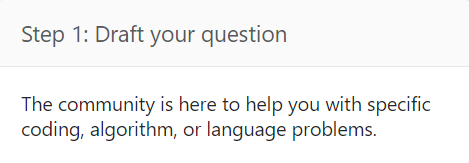Answers to these four are quite trivial, but you get the point.
Unfortunately, I didn't. The examples were mostly asking for speculation (only the concerned people can know that) or trivia (rather useless knowledge).
I guess there are interesting programming history questions to be asked, because programming history is part of history and history is interesting. But history just for the sake of describing the past doesn't really help you much for solving problems in the present.
For example: Would knowing more about how Donald Knuth's religious beliefs influenced his computer studies help you understand programming better? Maybe only marginally and maybe that wouldn't be the main point of asking for it.
One can though learn from history (and most of programming history isn't that long ago and/or is still relevant). In that case I would still prefer to connect it with an actually problem. So forget about simple why questions, ask the following instead:
- How does (historical fact) X help me solving (modern problem) Y?
- What (programming) problem was (historical fact) X supposed to improve at (time) T?
- Why couldn't people in (time) T solve (problem) X with (solution) Y?
- Why is (historical solution) X not used anymore and superseded by (newer solutions) Y?
- ...
Good questions for Stack Overflow would need to be:
- answerable in an concise, objective fashion (so excluding most simple why questions)
- useful for modern day programming (including all legacy programming) which means they must be somehow relevant and the programming aspect must be the main aspect and the historical connection only context
If you can do this, ask a question here. Make history the context and make it about a programming problem, i.e. make the history relevant for programming.
Btw. there are already thousands if not millions of questions existing on Stack Overflow that primarily have historical relevance anymore, e.g. questions from 10 years ago that dealt with a technology that's no longer used much or at all (something like Visual Basic maybe). And over time, Stack Overflow will document programming history.
If it's only about history without relevance to programming problems (like why is language X called X) you may ask at any place discussing history (if they deem it important enough).
Summary: If it's connected to a programming problem it may even be ontopic here as some kind of context to the problem, but otherwise ask it elsewhere at a place focused on history.
